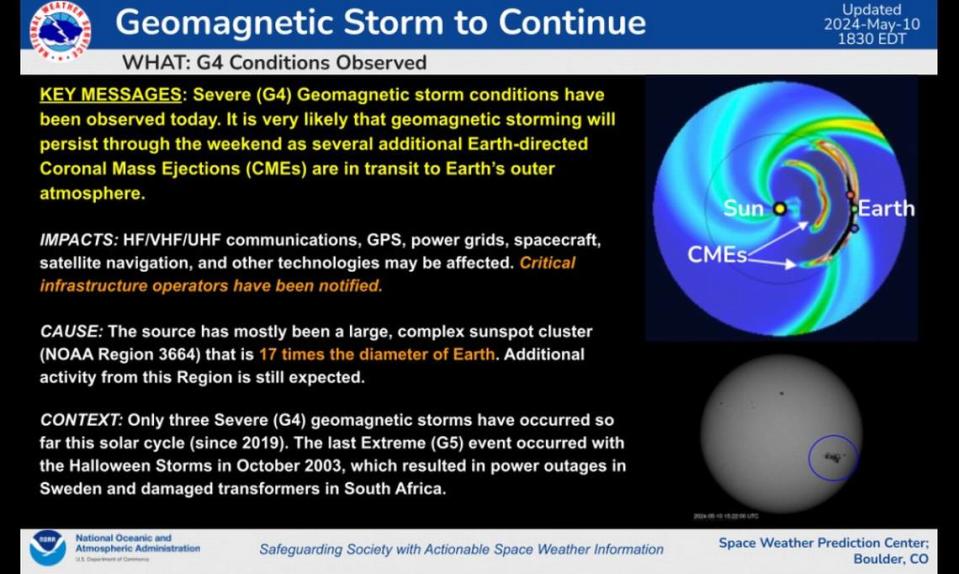Missed the northern lights in SC? You may have another chance. Here’s when and where best to watch
If you missed seeing the northern lights illuminate parts of South Carolina’s skies Friday night, you may be in luck. They could return this weekend.
The National Oceanic and Atmospheric Administration Space Weather Prediction Center issued a Severe Geomagnetic Storm Watch Friday evening — its first since January 2005. The rare solar event moved the northern lights much farther south than usual, all the way into the Upstate Friday evening.
South Carolina residents posted photos of the rare, unusual sight on social media.
WOW!! Northern Lights from South Carolina! @GreenwoodSCcom @capitalweather pic.twitter.com/fiIZsKT8sO
— Mike Sowko (@MikeSowko) May 11, 2024
The northern lights return
The northern lights phenomenon is caused by solar storm particles entering Earth’s magnetic field and interacting with atmospheric gases, according to NASA. The interaction creates a glowing, ethereal display that’s typically visible closest to the North and South poles.
As of Friday evening, the prediction center announced that the extreme geometric storm is likely to last throughout the weekend, given that several “additional Earth-directed Coronal Mass Ejections are in transit.”

When & where to watch in SC
While there is no guarantee the northern lights will appear in South Carolina again Saturday and Sunday, if they do, they’ll once more be best visible mainly in the Upstate. However, much of South Carolina may also have the chance to see the lights lower on the horizon. Residents have a bit of luck, given that there should be clear skies across the state Saturday night, according to the NWS.
The best time to see the northern lights are during the 3 to 4 hours before and after midnight. Get away from cities and light pollution to best view the phenomenon.
Threat from the storm
The geomagnetic storm could disrupt satellites, radio signals and power grids, NOAA warns. The use of GPS could also be impacted.


